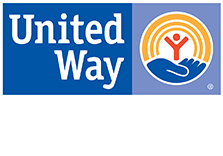Compassion is contagious: Caring for my family motivated me to help caregivers at work. It can inspire you, too.
By Sheliah Heckla, Vice President of Human Resources, UPMC
Whether it is stopping by weekly to mow the lawn, helping with grocery shopping, or living with an aging loved one full-time, adult caregivers come in many forms. Caring for a senior while holding a job can also add pressure to a person’s life. At UPMC, we know that in order to provide life-changing medicine and excellence in service to our customers, patients, and community members, we must create an environment in which our employees feel safe and supported.
When UPMC was presented with the opportunity to partner with United Way of Southwestern Pennsylvania on the United for Caregivers@Work initiative, we jumped at the chance to get involved. Over the course of several years, we have been able to engage our employees juggling their dual roles of caring for an aging loved one and their career within UPMC to establish a culture where they can share their struggles, find resources, and continue to grow within the organization. As a Vice President of Human Resources at UPMC, I know just how important an organization’s culture truly is to retaining staff and keeping them feeling energized by their work – especially when they may already be feeling drained from caregiving responsibilities outside of work. By focusing on and investing in the employee and providing resources to make their caregiving journey easier, we are confident that they will reciprocate in sharing their expertise and skillset to move our mission forward.
In partnership with United Way of Southwestern Pennsylvania, AARP, and ReACT, UPMC developed an initiative called Helping Aging Loved Ones (HALO) to support UPMC employees who are caring for an elderly loved one. HALO highlights the many services UPMC offers to employees, free of charge. Through this support, we strive to help employees reimagine caregiving as a reward rather than a burden by reducing stigma and transforming to a culture of support. Some tips for you to begin to create this culture:
- Be open about your own caregiving experiences. By honestly sharing your own background with caregiving, employees will feel more comfortable opening up about their struggles. If you find that multiple employees are having trouble with caregiving, consider coordinating a staff-led support group. Meetings could be over lunch, scheduled weekly, monthly, quarterly, or as-needed to build up personal connections.
- Tap into available resources and showcase them. Work with an internal communications group to periodically highlight resources available through FMLA or an employee assistance program. Invite professionals to host webinars or ‘lunch and learns’ on-site to discuss topics like Financial Planning or Caring for the Caregiver.
- Provide private space. Consider creating a private space, like a vacant office or cubicle, where employees may make phone calls to schedule doctors’ appointments or check in with a home care attendant during their breaks.
- Educate managers. Managers can make or break the employee experience. Ensure your managers are educated on the resources available to employees and know how to provide support and flexibility when needed.
As a family caregiver myself, I can personally attest to the life-changing impact of having an employer that stood by and supported me in my moment of need. In 2014, after a series of illnesses and appointments my mother was diagnosed with stage 4 stomach cancer. Over the next year, there were chemo treatments, vacation trips to make memories to last a lifetime, and finally long hospital stays where our final goodbyes were shared. During every part of the process I was lifted-up and supported both by my clinical colleagues at UPMC that took care of my mom, but also my entire family and my business colleagues – my UPMC family helped me to be the daughter I wanted and needed to be in those moments. They made it safe for me to come to work, provided resources that mattered, allowed me space and time to share when I needed to share, and had my back when I could not be here because I was so needed at my mother’s side. I am and will always be grateful for the support I was provided. It is my hope that every employee receives this level of support.
When an employee feels comfortable sharing their caregiving situation without the fear that it will limit their potential, they’ll become more motivated and committed to work, and potentially stay with the organization longer. My story is not what brought me to my career at UPMC, but rather, what will keep me at UPMC.
If you are not sure where to get started, United Way of Southwestern Pennsylvania has created an easy step-by-step guide on how you can bring the United for Caregivers@Work initiative to your organization. If you are interested in becoming a Champion for Care within your workplace, please contact Heather Sedlacko, Director of Programs for Seniors and People with Disabilities at United Way of Southwestern Pennsylvania, at heather.sedlacko@unitedwayswpa.org, for a program guide and toolkit to help you get started strengthening your commitment to empowering employees.







